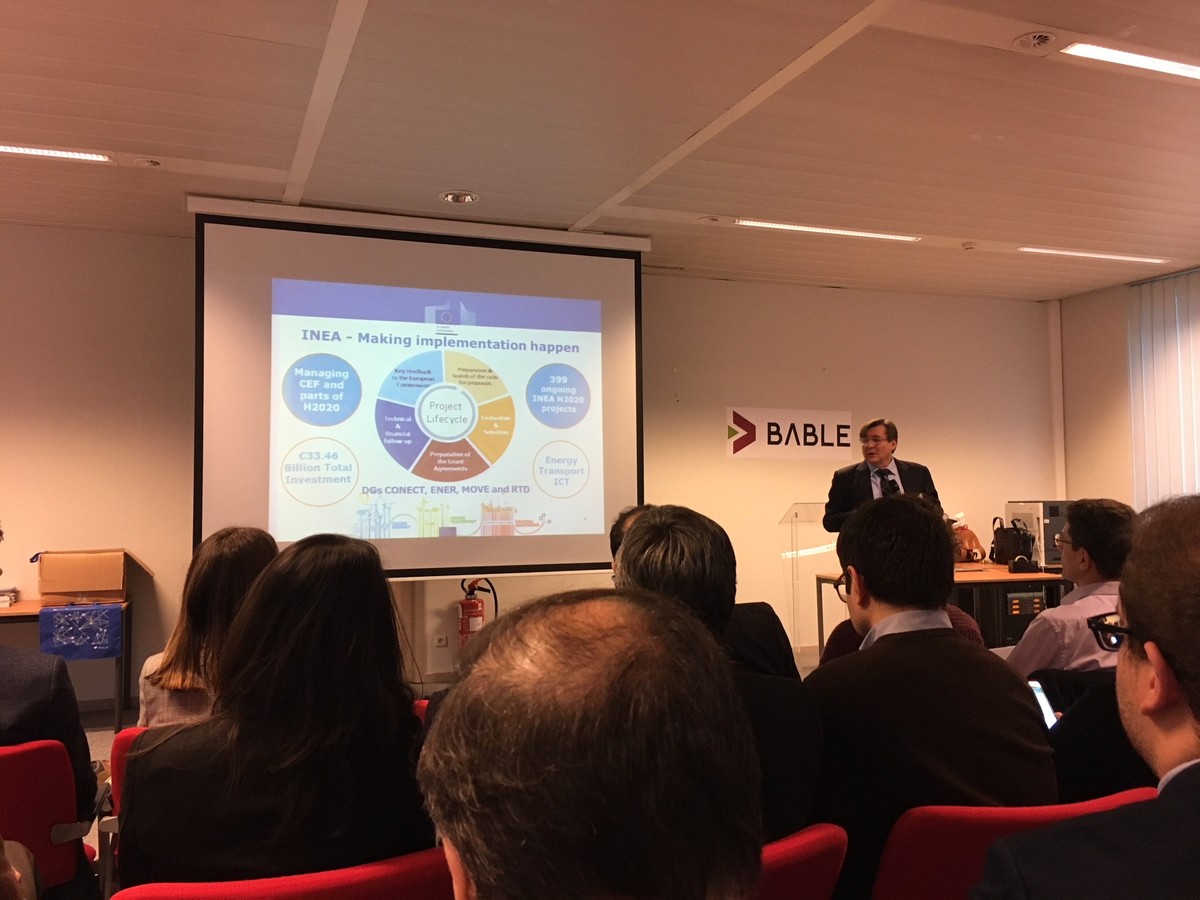REMOURBAN and fellow projects in Brussels for a series of smart cities workshops

On 26 January 2018 representatives of 40 cities sat around the table at the Innovation and Networks Executive Agency (INEA) with industry representatives and experts to ensure that the €263.84 million invested by the Commission through the Horizon 2020 Smart Cities and Communities programme generates returns.
Among the delegates were REMOURBAN Lighthouse cities Nottingham (UK), Tepebasi (Turkey) and Valladolid (Spain) as well as follower city Seraing (Belgium).
The funding provided by the H2020 programme is generating savings by stimulating common solutions to shared challenges, allowing cities to collaborate on design, and even engage in cross-border joint procurement. When cities create scale through demand aggregation they have the power to shape and influence the market.
Forty cities making a joint purchase of 1000 electric busses have a lot more power to negotiate and standards than each city individually seeking to purchase 25 units. Reducing 40 transactions to a single one also means spending only a fraction of the man-hours that would otherwise be needed.
The one-day event involved various workshops covering three main topics: low-energy districts, integrated infrastructure and urban mobility. Faith Blakemore from NCC moderated a table discussion entitled Replicating Energy Districts which focused on how to work across both public and private housing. Following the event, she told us “The most interesting thing that I took from the conversations was about the benefits of a city owned ESCo and the potential barriers/opportunities that exist in replicating our model in other cities. It seems that ESCo’s are valuable in giving cities the capacity to set energy projects in motion and being able to make strategic decisions across the whole area”.
REMOURBAN’s Murat Karabatur from Turkey-based Olcsan Technology participated in the workshop on integrated infrastructure. He briefed attendees on the current state of street lighting and how it could look in the future along with business models to support growth. Some of the developments to date include sensors inside lampposts that can measure air quality and noise levels, smart parking measures and security and density cameras.
Other measures discussed in Friday’s meeting were bike and car sharing, and smart parking; building retrofit; zero emission zones; sustainable logistics; and electric vehicles. The scale of these projects means that cities are becoming more attractive to global investors, as cooperation promises enormous returns and greatly reduced risk.
Through H2020 Smart Cities and Communities, European funds are ensuring that cities cooperate and collaborate to implement solutions more efficiently, more rapidly and more widely. Through 12 projects, 86 cities are working together across national borders to an unprecedented degree, with 36 ‘lighthouse’ cities piloting innovative technologies, and 40 ‘follower’ cities engaging in intensive peer learning activities in order to replicate the solutions being implemented. “Knowledge transfer,” insisted INEA’s Alan Haigh, “will be achieved through the presentation of concrete results.” According to Mr Haigh, “A huge amount of data is now available,” and the remaining challenge is, “how to make it accessible and useful.”
Friday’s meeting was the opportunity for these 40 follower cities to exchange about the hurdles they have encountered so far, so that they can learn from each other to achieve more effective collaboration, leading to larger returns on the programme’s investments.
Building smart cities creates wealth and combats waste through establishing economies of scale, creating greater efficiency within cities, and improving the health of citizens. The WHO estimates that the health impacts of air pollution cost the EU over 1 trillion euro in 2010 alone. If cities can join forces to implement smart solutions, engage in joint procurement, and cut energy costs to create a greener Europe, the Commission’s ½ billion investment will surely be money well spent.
These projects are already producing positive results, and the Commission is fully supportive to build further momentum along this trajectory. Jens Bartholmes, policy officer at the European Commission, invited cities to come forward and share their smart city related plans and needs. The Commission tasked the support team of the European Innovation Partnership for Smart Cities and Communities Marketplace to help with this data collection and based on this overview of real needs will fine-tune its support to European cities.



